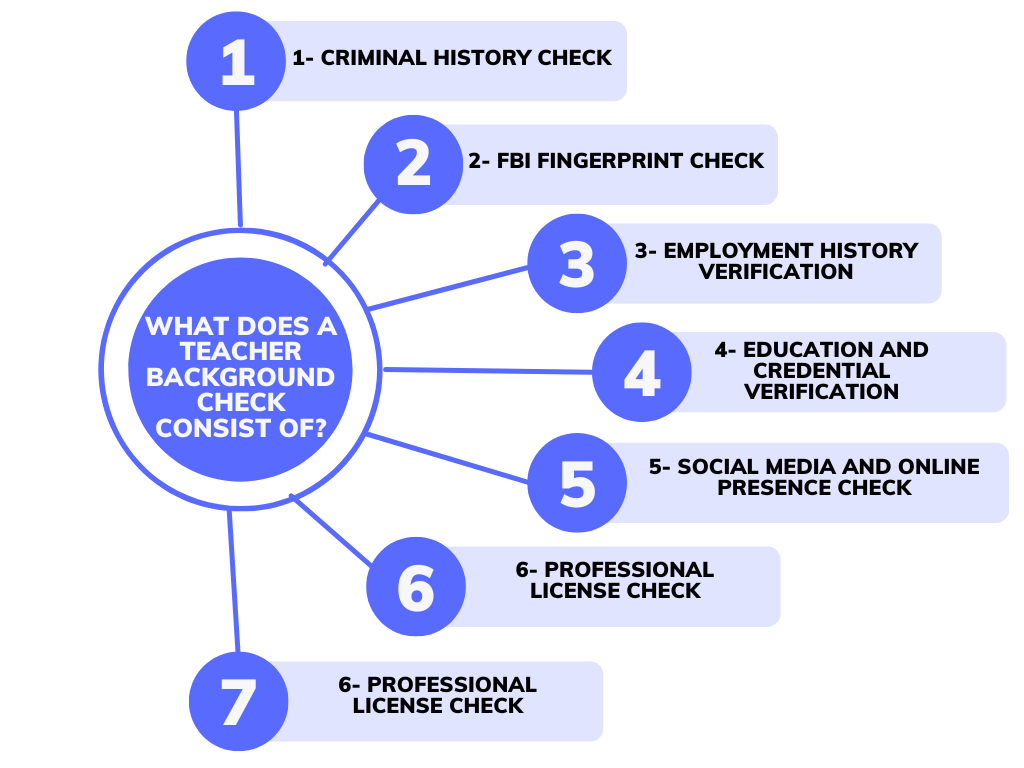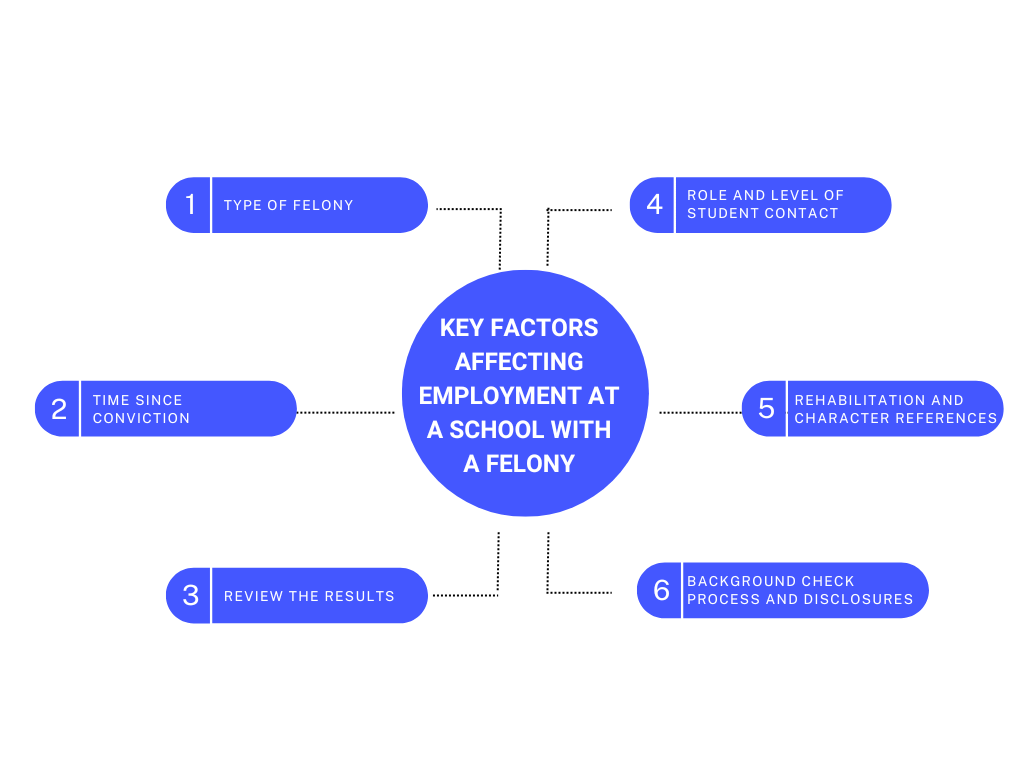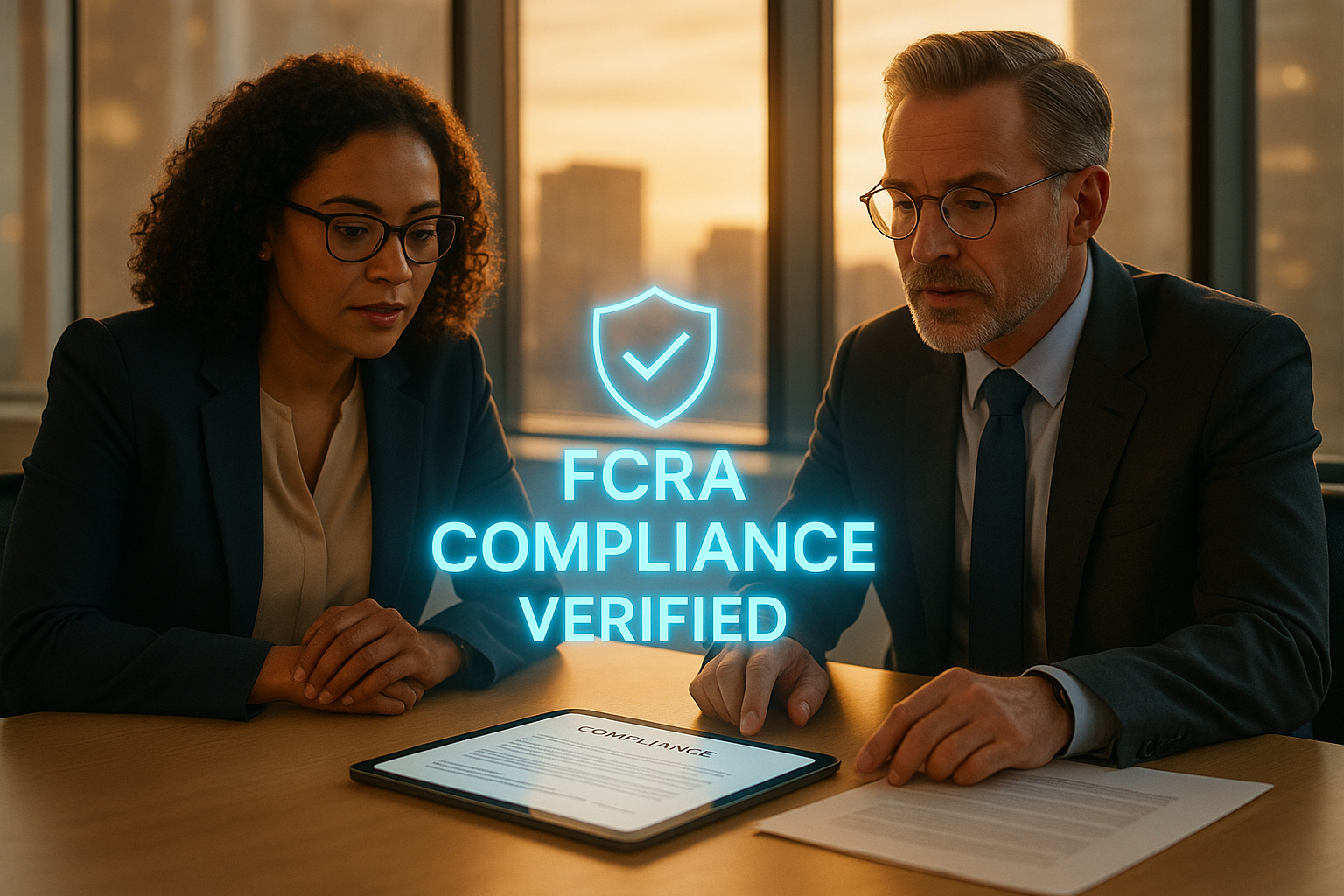Can You Work at a School with a Felony or Misdemeanor?

Working at a school or any other educational sector is a rewarding opportunity, but for individuals with a criminal record, it can raise questions about eligibility. As long as it's not sexual or involving children, you'll probably be okay.
While having a criminal record will make it more difficult for applicants to become teachers, whether you can become a teacher will depend on several factors, such as the age of the conviction and the type of crime committed.
Schools conduct various types of background checks for those interested in teaching to ensure that candidates are suitable for the role and reduce hiring bias. In this article, we will explore the impact of criminal convictions on employment in schools, the process of teacher background checks, and how candidates can improve their chances of securing a position.
What is a Teacher Background Check?

A teacher background check looks at a candidate's history, including criminal records and other information that might affect their ability to work with children. It usually includes checking the sex offender registry and criminal history, along with other factors that could disqualify them.
These background checks are important to make sure teachers don't pose a risk to students or the school. By doing these checks, schools can make safer hiring decisions and ensure the protection of children.
Why is a Teacher Background Check Important?
Background checks are an essential step in the hiring process for educators. Schools must ensure that those working with children have clean records and can be trusted to provide a safe, effective learning environment. In many cases, background check requirements vary depending on local, state, and federal regulations.
Studies suggest that 70% of job applicants have lied or would consider lying on their resumes, which is why background checks are so critical for verifying information. Learn more about the importance of accurate hiring here.
What Does a Teacher Background Check Consist Of?

A teacher background check typically includes key components to assess the qualifications of candidates and criminal history. It may include:
- Criminal History Check: Reviews an individual’s criminal record for any history of serious offenses that could disqualify them from working with children.
- FBI Fingerprint Check: Analyzes fingerprints against FBI databases to identify any criminal records at the national level.
- Employment History Verification: Confirms previous employment details to verify past work experience, roles, and performance.
- Education and Credential Verification: Ensures that the candidate possesses the required degrees, certifications, and other qualifications for teaching.
- Social Media and Online Presence Check: Assesses an individual's online behavior and interactions to identify any potential risks, such as inappropriate conduct or discriminatory language.
- Drug Screening: Tests for the use of controlled substances, which is often required to ensure the candidate can perform their duties safely.
- Professional License Check: Verifies that the candidate holds the necessary state or national teaching licenses.
- Credit Check (in Certain Cases): Although not always required, some schools may conduct a credit check to assess financial responsibility, especially for roles involving financial management.
These elements ensure that a candidate has the proper background and qualifications to work in a school setting. Background checks also play a role in reducing hiring bias by verifying an applicant’s credentials and history. Find out more about how social media screening can help reduce hiring bias. And the common red flags on a background check for school employees include:
- Serious Criminal Convictions: Convictions related to violence, abuse, or drug distribution often disqualify candidates, particularly if they involve harm to others.
- Inconsistent Employment History: Gaps or inconsistencies may lead to follow-up questions, especially if not properly explained.
- Inappropriate Social Media Activity: Content that shows discriminatory behavior, threats, or violence can signal potential risks.
- Dishonesty on Resume or Application: If a candidate’s application contains false information, such as fabricated job titles or exaggerated roles, it can indicate untrustworthiness.
Can You Work at a School with a Felony or Misdemeanor?
Convictions for sex offenses, violent crimes, certain drug offenses, child abuse, and other serious felonies typically result in disqualification for employment in a school. In some cases, certain misdemeanors may affect teaching eligibility in Texas, depending on the severity and nature of the offense.
Each case is unique, and the decision to hire someone with a criminal record will depend on several factors, including the time since the conviction and the nature of the crime. Schools also consider the role a person would have at the school. Those applying for teaching positions where they will have direct contact with students are held to stricter standards.
Key Factors Affecting Employment at a School with a Felony

Several factors can affect your ability to work in a school with a felony conviction. Understanding these factors can help you prepare for the application process.
1. Type of Felony
- Violent or Sexual Offenses: These offenses are often grounds for automatic disqualification.
- Non-Violent Offenses: These may be considered based on the circumstances and time passed since the conviction.
2. Time Since Conviction
The length of time since the conviction is an important factor. Older offenses, especially those where the individual has demonstrated rehabilitation, may not impact a candidate’s eligibility.
3. State and Local Laws
Each state and school district may have different laws regarding who can be employed with a criminal record. It's important to research specific regulations in your area.
4. Role and Level of Student Contact
Jobs that involve direct interaction with students, such as teaching, are subject to stricter background check requirements than administrative positions.
5. Rehabilitation and Character References
Demonstrating rehabilitation through programs or support from character references can improve your chances of being hired. Employers may take your efforts to change into account.
6. Background Check Process and Disclosures
It is essential to be transparent during the hiring process. If you have a criminal record, disclosing this information upfront may lead to a more favorable outcome.
What Other Factors Disqualify Candidates from Being a Teacher?
In addition to criminal convictions, other factors may disqualify candidates from being employed as a teacher. These include:
- Sex Offenses: Any history of sexual offenses, especially those involving minors, typically results in an immediate disqualification, as schools prioritize student safety.
- Serious Felonies: Violent crimes, such as assault or homicide, are generally considered serious felonies and can prevent employment in educational settings due to the risk they pose.
- Convictions for Person Crimes: Crimes against individuals, like battery or domestic violence, are red flags for schools that emphasize maintaining a secure environment for students and staff.
- Drug Convictions/Failed Drug Tests: A history of drug-related offenses or recent failed drug tests can indicate behavior that is incompatible with school policies and child safety standards.
- Unprofessional Conduct in Previous Employment: If a candidate was terminated or disciplined in past roles for unprofessional behavior, it may raise concerns about their ability to maintain a supportive and respectful classroom environment.
- Inappropriate Social Media Presence: Content on social media that reflects discriminatory views, threats, or harmful language can disqualify candidates, as schools seek individuals who model positive behavior.
These factors can disqualify an applicant from teaching, regardless of the time passed since the incident. A clean record and professionalism are key to securing a teaching role.
Steps to Improve Employment Chances in Schools After a Felony
If you have a criminal record, there are several steps you can take to improve your chances of being hired at a school.
- Seek Expungement or Record Sealing: In some cases, you may be able to have your criminal record sealed or expunged, making it easier to find employment.
- Pursue Rehabilitation and Education Programs: Demonstrating that you have worked to better yourself can show potential employers that you are committed to change.
- Build Strong References: Character references from respected individuals can support your application and demonstrate your commitment to professionalism.
- Volunteer or Intern in Related Fields: Gaining experience in education-related fields, even in non-teaching roles, can help you build a network and show your dedication to the profession.
Teacher Background Check Laws and Requirements
Understanding the laws and regulations around teacher background checks is important for both employers and job applicants. Teacher background checks are governed by several laws:
- Fair Credit Reporting Act (FCRA): This federal law regulates the use of background checks and ensures that employers conduct checks fairly and accurately.
- State Teaching Background Check Laws: Different states have varying requirements for teacher background checks. It’s important to familiarize yourself with the regulations in your state.
Alternative Career Paths in Education-Related Fields
If teaching is not an option due to a criminal record, there are other career paths in education-related fields to consider:
- Tutoring and Mentorship Programs: Working as a tutor or mentor allows individuals to help students on a one-on-one basis or in small groups. This role often has fewer background restrictions and enables a direct, positive impact on student learning.
- Non-Profit and Community Programs: Many community-based organizations and non-profits offer educational support services, from after-school programs to youth outreach.
- Vocational Training Centers: Vocational and technical training centers offer instruction in practical skills and trades. These institutions often have different hiring criteria and can provide opportunities for those interested in teaching specialized skills.
These positions allow you to work with students without the same level of scrutiny as traditional teaching roles.
How Ferretly Supports Safe and Fair Hiring in Schools
Ferretly provides AI-driven background screening tools that help schools make safe and informed hiring decisions.
By using AI, schools can screen candidates more quickly and accurately while reducing bias. Ferretly’s platform offers social media background screening, criminal record checks, and other essential services to ensure that hiring decisions are based on facts, not assumptions.
Take control of your hiring process with AI background checks and Request a demo to learn more.
Frequently Asked Questions
1. How Long Does a Teacher Background Check Take?
How long it might take for you to complete a teacher background check will depend on how you go about conducting it. If you send requests to multiple agencies, educational institutions, and former employers, you can expect the process to take weeks.
2. What Do Schools Look for in Background Checks?
Schools typically look for criminal history, including sex offenses, violent crimes, and any other crimes that may make an applicant unsuitable for working with children.
3. Can You Work for a School District with a Felony in Texas?
School district hiring policies may prohibit employment if an applicant has a criminal conviction. Each district has different policies, so it’s important to check with individual districts for their specific requirements.
4. Do Jobs Look at School Records?
Employers checking student records or grade transcripts is also a standard part of the typical interview process for most jobs. In many cases, employers focus more on your work experience, skills, and qualifications relevant to the job.
5. Do Schools Do Background Checks on Students?
Yes, colleges run background checks on applicants. However, this doesn’t necessarily mean you will be rejected if you have a criminal record.
6. What Do School Volunteer Background Checks Look For?
Depending on the level of detail required by an organization, background checks for nonprofits and volunteers could include criminal history, driving records, employment history, education verification, personal references, and drug screening.
Conclusion
In conclusion, while a criminal record can complicate the process of working in a school, it's not necessarily an automatic disqualification.
Understanding the factors that influence hiring decisions and taking proactive steps to improve your eligibility can help you secure a position in the education sector.
By being transparent, seeking rehabilitation, and understanding the background check process, you can enhance your chances of success.






